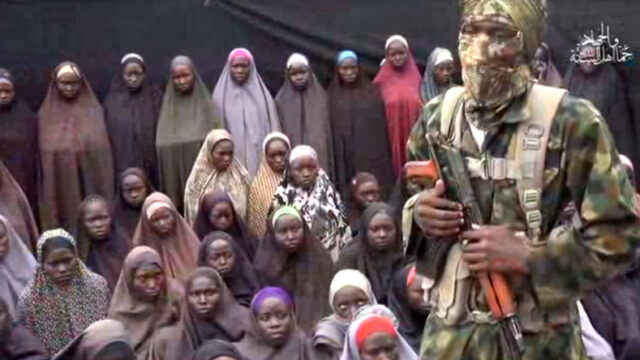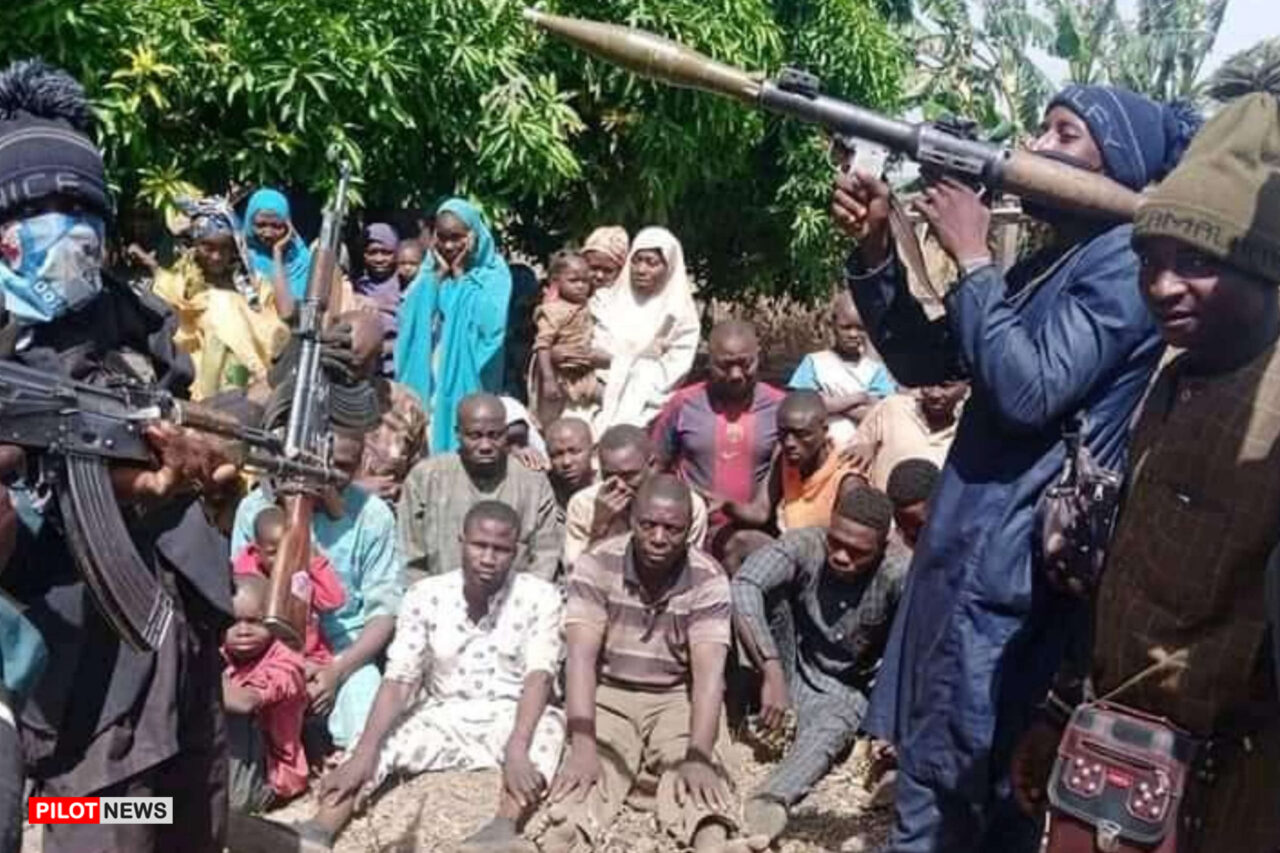Abduction for ransom by criminal elements witnessed an unprecedented surge within the past few months. Principally the abduction of students in public schools, a few of these incidents clinched the headlines, raising concerns about the odds of a violent free Nigeria.
The school series, from Dapchi girls, Kankara, Kangara boys to Jangebe girls are a repetition of the historic Chibok girls’ abduction which many believed to have cost Goodluck Jonathan, the former president, the exalted position in 2015.

Though Chibok schoolgirls weren’t the first case of kidnap in the country, it was, however, the first of such scale to receive both national and international recognition. It was on the heels of this spiraling insecurity that President Buhari was elected.
His promises were clear and precise, to repel against Boko Haram incursion and decisively resolve the lingering insecurity.
Seven years on,112 schoolgirls of the 276 abducted are yet to regain freedom, there’s a list of similar cases, a domestic insurgency is thriving in the north with several pockets of violence in other parts of the country.
For the recent attack on Jengebe school girls, an analysis of the country’s record has raised concern on the prospect of securing the release of the hostages.
The Dataphyte report pointed out the vulnerability of schoolgirls compared to boys using previous incidents. Just as it indicated, the federal government has never been able to secure the release of all abducted schoolgirls, unlike the boys who have all always regained freedom.
Howbeit, the recent surge in kidnapping isn’t the only cause for alarm in the country, especially with the unfurling of violence at the grassroots in various forms.
Expanding extremism and conflicts
Insecurity has been one of the most threatening and complex issues in Nigeria, particularly in the last decade as multiple conflicts continue to expose citizens to the risk of getting killed or displaced.
Violence in affected zones has managed to stay on an operational tempo, despite funding and the heavy presence of security operatives tasked with restoring peace and maintaining law.
The increase in mass crime including Boko Haram attacks, recurring inter-communal conflicts, militancy, banditry, and the disproportionate use of force on citizens by security operatives have forced many into terror and morbid fear. Little wonder Nigeria was named one of the world’s most dangerous places to live or work in.
The country is marred by conflicts and several violent attacks which are sometimes motivated by political, social, and religious overtones, like the militant Islamic movement, Boko Haram.
The insurgent group rated Africa’s deadliest terrorist group is responsible for the death of over 37,500 people. The United Nations Children’s Fund reported that the group has kidnapped more than 1,000 children in northwestern in the last decade.
Boko Haram occupied the northwest alongside other new factions of the group including the Islamic State of West Africa Province (ISWAP) and the al-Qaeda affiliate, Ansaru, thus unleashing terror on vulnerable residents.
Though other zones may not be as susceptible to attacks as the northeast, violence is thriving significantly in several parts of the country. On one end, the Niger Delta is grappling with ethnic and political unrest which is fueled by the struggle for oil wealth.
The farmer-herders conflict in the north-central and most recently in the southern zones was rated six times deadlier than Boko Haram Insurgency.
The struggle over grazing land and scarce resources have over the years have escalated into violent conflicts with With an estimated death toll of over 10,000 people in the last decade and 4000 of them between 2016 – 2018 alone.
Increasing defense budget
The government’s failed attempt to end insecurity within a short period and the insufficient headway against the rising terror with human rights costs among other things led to a discordance among major stakeholders.
The Nigerian senate alarmed by the spread of insecurity despite considerable funding called for the dismissal of the service chiefs in 2020. Hereby facilitating the appointment of new persons by President Buhari.
Year after year, the security sector continues to gulp the highest chunk of the country’s expenditure although the military continues to claim allocations to the sector were grossly insufficient to equip the armed forces and make them operate efficiently.
In the last decade, Nigeria’s defense budget has increased substantially yet security challenges have continued to evolve at the grassroots in various forms.
Nigeria has allocated ₦3.8 trillion on the defense budget within 2011-2020. Compared to what was allocated to defense in the previous year, the 2021 budget saw a significant shift with a 10.2% increase.
In 2019, the FG allocated ₦445 billion to the defense sector, a slight increase from the ₦433 billion allocated in 2018, ₦344 billion, and ₦325 in 2017 and 2016 respectively.
A recent survey indicated that Nigeria’s military expenditure is expected to rise to $2.2 billion at a compound growth rate of 6.55% by 2024.
(Defense sector budgetary allocation Infographics)
In 2019, the capital expenditure’s share of the total defense budget reached 26.6% and is expected to stand at 27.3% by 2024.
The factors that account for the inconsistency between the received result and the defense budget are presently a primary concern.
The recent murder of over 100 rice farmers by extremists in Borno State is an indication that security responses aren’t working.
In West Africa, Nigeria’s military allocation is higher than the budgets of all the other states’ defense put together.
Niger is less than N72 billion, Chad’s 9 billion while Benin’s 44 billion. However, Nigeria is still one of the most dangerous places in the world.
Losses from worsening insecurity
The friction between the defense budget and the performance is exposing citizens to marauding gun-wielding criminals while triggering acute unrest in the country.
Though Boko Haram territories have reduced over the past few years, Kidnapping, destruction of villages, displacement, suicide bombing, sexual harassment targeted at women, and the forced recruitment of underage boys grew ostensibly.
By the end of 2015, Nigeria recorded a dramatic increase in fatalities reaching about 11,000 deaths having experienced the largest massacre by Boko Haram. The attack on Baga claimed the lives of about 2000 people in one day. Despite launching a counter-terrorism campaign with a coalition of forces from neighboring countries, Nigeria still surpassed 1000 fatalities within the first quarter of that year.
Particularly in the North Central and the South, the conflict over land access is escalating just as the tension between the warring parties is increasing.
The conflict has taken an estimated 19,000 lives despite only rising to prominence recently. Since the conflict intensified in 2018, about 300,000 people in Adamawa, Bauchi, Nasarawa, Plateau, and Taraba state have fled their own homes.
Alongside the prominence of gunmen, bandits and gun-wielding herder came a dramatic surge in abduction for ransom. Nigeria has one of the world’s highest rates of kidnap-for-ransom cases.
The crime has prevailed despite the measures adopted by the government. In the first quarter of 2019 only, the country had 685 cases of kidnapping according to a police report.
These frequent acts of violent crime have grown to form a major threat to Nigeria’s national security while authorities endeavor to stem the menace without a substantial feat.
- Breaking: Ohanaeze President General, George Obiozor, confirmed dead - December 28, 2022
- US to support NDLEA on improved intelligence gathering capacity - December 27, 2022
- Why diversified HIV/AIDS prevention tools matter for women - December 26, 2022


